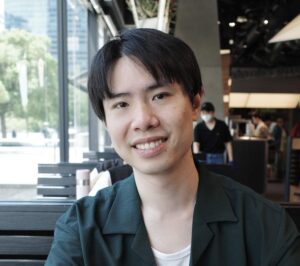 |
Yize Hu will receive a D. Kim Foundation Postdoctoral Fellowship for the academic year of 2024-2025. His book project, “Resilience of Systems: Technocracy and Information Society in Japan, 1960s -1980s,” examines the impact of the engineering concept of “system” on the Japanese technocratic culture and capitalism between the 1960s and 1980s. Initially adopted by a technocratic coalition of engineers, economists, bureaucrats, and executives in the late 1960s, the system approach served as methodology for them to understand social issues and realize a utopian vision of an “Information Society.” He will pursue this project at the University of Kyoto, which will become the foundation of his next project, “Information Systems, Social Governance, and the Digital Landscape of East Asia.” |